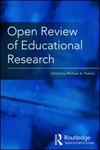迷失在翻译中:Māori知识的西方表现
Q1 Arts and Humanities
引用次数: 13
摘要
我们最近参加了一次会议,在会议上,一位non-Māori的演讲者利用Māori作者已经建立的一个特定比喻,将Māori的自然世界特征与一种研究方法联系起来。这个演讲很有用,因为它突出了几个问题,需要我们作为Māori哲学家的关注。在本文中,我们概述了这些问题,它们是:首先,从Māori的角度来看,对这种介绍的直率回应不是轻率的;其次,演讲者的演讲体现了一个更广泛的问题,即扭曲Māori概念和标签以适应西方哲学方法。我们称后一个问题为“翻译”,因为它涉及到将Māori世界及其现象转移到一个适合政策和研究的地方。这篇文章的目的不是要挑出演讲者,而是要参考他的演讲,以便考虑翻译的先前问题。在翻译发生的情况下,显然需要一个Māori批判的哲学立场,以调查其所依赖的Māori思想的扭曲,并回顾Māori哲学和哲学反应在教育研究领域的地位。本文章由计算机程序翻译,如有差异,请以英文原文为准。
Lost in translation: western representations of Māori knowledge
ABSTRACT We recently attended a conference at which a non-Māori presenter, drawing on a particular metaphor already established by Māori writers, related Māori natural world features to a research method. The presentation was useful because it highlighted several issues that call for our concern as Māori philosophers. In this article, we outline these concerns, which are: first, that a blunt response to such a presentation is not undertaken lightly from a Māori viewpoint; and, second, that the presenter’s talk exemplifies a wider problem of warping Māori concepts and labels to fit a Western philosophical approach. We call this latter problem ‘Translation’, because it involves moving the Māori world and its phenomena over into one that is palatable for policy and research. The aim of the article is not to single out the presenter, but rather to refer to his presentation in order to consider the prior issue of Translation. In cases where Translation occurs, a Māori critical philosophical stance is clearly needed, in order to both investigate the warping of Māori thought on which it relies, and review the place of Māori philosophy and philosophical response in the arena of educational research.
求助全文
通过发布文献求助,成功后即可免费获取论文全文。
去求助
来源期刊

Open Review of Educational Research
EDUCATION & EDUCATIONAL RESEARCH-
CiteScore
2.60
自引率
0.00%
发文量
0
审稿时长
22 weeks
 求助内容:
求助内容: 应助结果提醒方式:
应助结果提醒方式:


